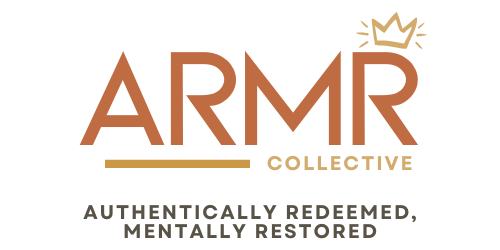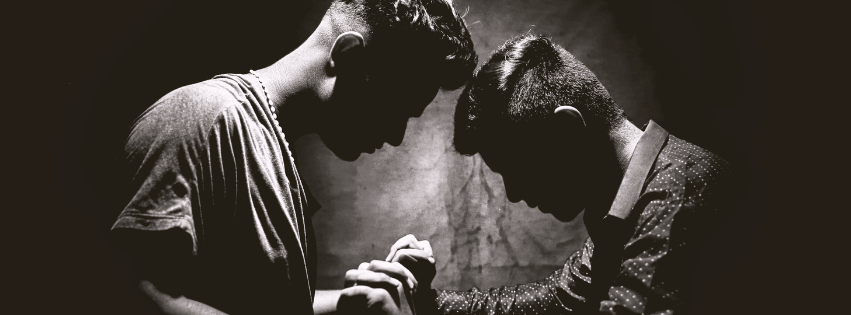We’ve all been there. That gut-wrenching moment when trust shatters. Maybe it was a betrayal by a friend who shared your deepest secret. Maybe it was a spouse who broke their vows. Maybe it was a family member who chose addiction over a relationship. Or maybe—and this is hard to admit—you were the one who broke someone else’s trust.
Trust is such a fragile thing, isn’t it? One moment it’s there, solid as stone, and the next it’s splintered into a million pieces that seem impossible to put back together. I want to talk about something that I’ve been struggling with: the messy, challenging, beautiful journey of rebuilding trust. And yes, I did say beautiful—because with God, even our most broken places can become the foundation for something stronger than before.
Understanding Trust and Forgiveness
First, let’s get something straight that took me way too long to learn:
Forgiveness and trust are not the same thing.
This distinction changed everything for me.
Forgiveness is mandatory for believers; trust is not. Forgiveness can be given freely, but trust must be earned. Forgiveness takes one person; reconciliation takes two.
Here’s a truth that might sting a little: forgiveness isn’t a feeling—it’s an action, a decision we make even when our emotions are screaming the opposite. Sometimes we have to choose forgiveness multiple times for the same hurt. That’s okay. That’s normal. That’s human.
I remember struggling to forgive someone who deeply hurt me. I’d pray, “God, I forgive them,” only to wake up the next morning with anger burning in my chest again. I felt like a failure at forgiveness until I realized that forgiveness often happens in layers. Each time I chose to forgive was peeling back another layer of hurt.
The Forgiveness-Trust Connection
Forgiveness opens the door for people to trust again, but it doesn’t automatically restore trust.
Think of forgiveness as unlocking the door, while rebuilding trust is actually walking through it together—a much longer journey that requires both parties to be actively engaged.
God doesn’t wait for us to be trustworthy before He forgives us. He offers forgiveness freely, while letting us earn trust through obedience and relationship with Him. What a beautiful model for us to follow.
Remember the story of Joseph in the Bible? After his brothers sold him into slavery out of jealousy, Joseph eventually rose to power in Egypt. Years later, when his brothers came seeking help during a famine—not recognizing him—Joseph didn’t immediately reveal himself or trust them. Instead, he tested them to see if they had truly changed before fully reconciling. He was looking for evidence that their hearts were different. Was he being unforgiving? No. He was being wise.
For Those Who’ve Been Hurt
If you’re the one whose trust was broken, I want you to know something.
You’re allowed to take your time.
Having boundaries isn’t punishing the other person—it’s protecting yourself while healing happens.
Remember how David chose honor over revenge despite King Saul’s betrayal? Even when Saul repeatedly tried to kill him out of jealousy and fear, David had opportunities to harm Saul but refused, saying “I will not lay my hand on the Lord’s anointed.” That’s our model. It doesn’t mean we become doormats—it means we choose to respond in a way that honors God, even when it’s hard.
Trust shouldn’t be placed solely on the betrayed person’s shoulders. It’s not your responsibility alone to “get over it” or “trust again.”
The person who broke trust has work to do too.
Here’s what helped me navigate this journey:
- First, separate forgiveness from trust in your mind. You can forgive someone without immediately trusting them again.
- Be patient, kind, and realistic with yourself. Rebuilding trust takes time, and there’s no “right” timeline.
- Don’t use boundaries as punishment. I’d type this is all caps, but I don’t want to yell. Boundaries are protection, not weapons!
For Those Seeking to Rebuild Trust
If you’re the one who broke trust, I want to be gentle but honest with you: words aren’t enough.
I know you might be desperate to fix things, to make everything okay again right now. You might be frustrated by how long it’s taking the other person to trust you again. But here’s the truth: the “offender” (I put that in quotes because we’ve all been there) needs to prove their words with actions.
Remember that verse in James 2:17, “Faith without works is dead”? James was teaching that true faith is always accompanied by action—it’s not just words or beliefs. The same principle applies here. You can say sorry a thousand times, but if your actions don’t change, those words ring hollow.
Here’s what rebuilding trust actually looks like when you’ve broken it:
- Admit and repent completely. This means full ownership of what happened. No “I’m sorry you felt hurt” non-apologies. Real, genuine acknowledgment of the pain caused.
- Practice forgiveness with actions and words. Ask what would help the person feel safe again, and then do it.
- Develop empathy and compassion. Try to truly understand the pain you’ve caused. Feeling someone else’s pain from your betrayal can be a powerful deterrent against repeating the same mistakes.
- Be consistent. Trust is rebuilt through repeated, consistent actions that match your words. One good day isn’t enough—it’s about the pattern over time.
- Don’t get defensive. If someone needs extra reassurance or check-ins to feel safe, that’s okay. That’s part of the process.
Remember: love does not harm one another. If you truly love the person you hurt, you’ll be willing to do the work, however long it takes.
The Path Forward: A Daily Choice
Rebuilding trust is a daily choice. Not a one-time decision, not a magical moment where everything suddenly gets fixed, but a series of small choices made day after day. And let me tell you, some days it feels impossible.
Lysa TerKeurst puts it beautifully when she says trust equals time plus believable behavior. You can’t rush this process. Time alone doesn’t heal wounds—it’s what happens during that time that matters.
The journey of rebuilding trust includes:
- Looking for trust-building moments. Notice and acknowledge when someone takes a step in the right direction. Celebrate small victories.
- Communication, clarity, and honesty. These are the foundations upon which trust is rebuilt.
- Finding what makes the other person feel safe. And then doing that consistently.
- Moving in a direction toward God. When both parties are seeking God’s guidance, the path forward becomes clearer.
Creating Space for Trust to Grow
When rebuilding trust, it’s important to create opportunities for the person who broke trust to demonstrate they’ve changed. This might mean allowing situations that feel uncomfortable at first—like letting them handle responsibilities or navigate scenarios that could potentially be triggers. For example, if trust was broken in a friendship, allowing them to spend time with other friends without assuming the worst.
The natural instinct might be to micromanage or constantly check up on the person. However, this approach is counterproductive for several reasons. First, constant monitoring prevents genuine trust from developing—you’re not actually trusting them; you’re just verifying their behavior. Second, it creates an unhealthy dynamic where they may feel constantly under suspicion, even when attempting to do better.
Instead, consider the balance of healthy boundaries with opportunities for growth. You might start with smaller trust exercises that feel less risky and gradually work up to situations that require more trust. Look for patterns of reliability rather than focusing on single incidents, and celebrate progress when you see it.
Remember that you can only control your own actions, not theirs.
You can set clear expectations, communicate honestly, and be open to rebuilding—but ultimately, restoring trust requires their consistent choice to be trustworthy.
You can create conditions where trust might flourish again, but you can’t force it to return through control. This realization, though sometimes difficult to accept, ultimately creates space for authentic rebuilding.
The truth is, rebuilding after broken trust means taking measured risks. There will likely be moments of progress and setbacks along the way. But without these opportunities to demonstrate changed behavior, trust remains theoretical rather than proven through actions.
When Trust Seems Impossible to Rebuild
Sometimes, despite our best efforts, trust cannot be fully restored—at least not in the way it once existed. This is especially true when:
- The other person refuses to acknowledge the wrong
- The pattern of betrayal continues
- The relationship was unhealthy to begin with
- Safety (physical or emotional) cannot be guaranteed
In these cases, forgiveness is still possible and necessary for your own healing, but reconciliation may look different than you imagined. Sometimes loving someone well means loving them from a distance.
When trust seems impossible to rebuild with someone, the pain can feel overwhelming. In these difficult situations, I’ve found comfort in remembering that healing often comes through unexpected paths.
While there are no quick fixes or simple answers, many have discovered that even the deepest wounds can eventually lead to new forms of growth and resilience.
Your journey is uniquely yours—honor both your pain and your hope, whatever shape they take.
It’s okay to take all the time you need and to protect yourself while still holding space for the possibility that something meaningful might emerge from this difficult season, even if it looks nothing like what you originally hoped for.
The Beauty in Rebuilding
Despite all the pain and difficulty, there’s something beautiful that happens when trust is rebuilt.
Relationships that survive broken trust often emerge stronger, deeper, and more authentic than before.
Like a broken bone that heals stronger at the fracture point, relationships can become more resilient at the very place they once broke.
I’ve seen it happen in my own life. Relationships I thought were beyond repair have, through God’s grace and hard work on both sides, become some of the most precious connections I have. The scars remain—testament to the journey—but they no longer cause pain.
A Promise of Restoration
God is able to restore what’s broken into something even more beautiful than before. That doesn’t mean it will be easy. That doesn’t mean it will happen overnight. But it does mean there’s hope.
The Bible is full of stories of restoration: Joseph reconciling with the brothers who sold him into slavery, Peter being restored to leadership after denying he knew Jesus three times, David finding forgiveness after his affair with Bathsheba and the murder of her husband.
These weren’t instant fixes—they were journeys of healing that required time, genuine repentance, and God’s transformative grace.
Final Thoughts
Whether you’re the one rebuilding trust or the one deciding whether to trust again, remember this: you’re not alone on this journey. God walks with you, and He specializes in redemption stories.
Keep choosing forgiveness. Keep taking steps forward. Keep seeking God’s guidance in this process. And don’t give up—your work will be rewarded.
As Proverbs 3:5-6 reminds us: “Trust in the LORD with all your heart and lean not on your own understanding; in all your ways submit to Him, and He will make your paths straight.” This powerful verse encourages us to place our ultimate trust in God rather than relying solely on our own perspective, especially when navigating difficult situations where our understanding is limited.
Sometimes the straightest path to healing isn’t the one we would have chosen, but it’s the one that leads us closer to God’s heart. And that’s where we find the strength to trust again.
What has your journey with trust looked like? I’d love to hear your story in the comments below. Have you been able to rebuild trust after it was broken? What helped you along the way?



